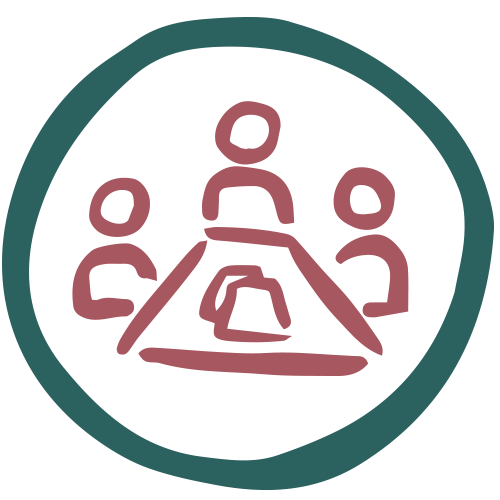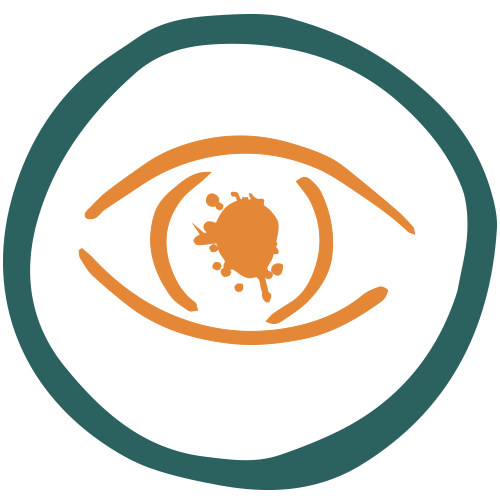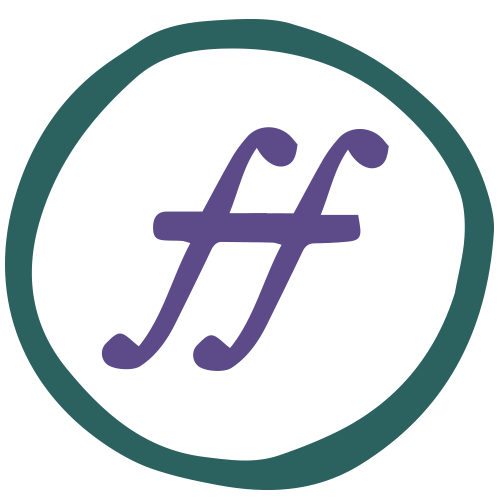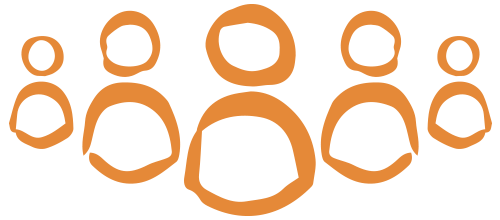
We are a group of five students aged 13 – 17 who have spoken at and hosted conferences on issues around gender and sexuality in schools. All of us are passionate about the need for change in the way sex education is taught to young people. Our joint feminist and LGBTQ+ society has provided an opportunity to learn more about the interconnected gender and sexual injustices in mainstream sex education, and to think about how we can activate change.
Conference (n) 1550s ‘act of consulting together’ Latin conferre ‘to bring together’
“The plait created a nice sense of supportive community”
“I liked being hands-on, like everyone was getting involved because you could touch it. There is something about touching stuff that makes it more real”
Plaiting for Progress
With support from our teacher, we had the opportunity to host a conference at our school for International Women’s Day. This event brought together different people, including other young feminist activists, gender equality campaigners, teachers and researchers. We all got to hear a range of
young people’s ideas about what would help make society more gender equal and gender fair.
One of the highlights of the day was getting all the conference attendees creatively involved by participating in a #plaitforprogress:
1: On strips of fabric we each individually wrote down how we would like to see intersectional feminist progress in our schools and then plaited these strips together in small groups
2: Each of these plaits were joined together to create a giant five stranded plait
3: The giant plait stretched up through the conference audience, taking up space, weaving amongst us as we discussed our ideas for change.

Plait for Progress set out to reclaim weaving, a domestic handicraft historically considered to be women’s work and inferior to other artistic mediums such as painting or sculpture. Inspired by the actions of feminist artists during the Women’s Liberation Movement, Plait for Progress aimed to challenge these aesthetic hierarchies and activate the transgressive and political potential of artistic methods such as weaving.

What is intersectionality?
Intersectionality is a lens through which you can see where power comes and collides, where it interlocks and intersects. It’s not simply that there’s a race problem here, a gender problem here, and a class or LBGTQ problem there. Many times that framework erases what happens to people who are subject to all of these things. (Kimberlé Crenshaw)
TURBO TALKS
As a result of the conference, we were invited to share our ideas about overhauling sex education at another gender equality conference. Each of us prepared a two-minute turbo talk on the topics that mattered to us most, why we wanted them to be taught and their importance to the sex education curriculum.
Our topics included:
The rights of women to learn about sexual pleasure and masturbation without shame
Why we should be taught about sexual assault, abuse and violence, and the differences between them
How you get to the moment of consent
Alternative reproduction and LGBTQ+ identities and relationships
![]()
“A lot of people came up to us afterwards and told us how much they enjoyed our talks”
“Afterwards we were invited to get involved in other campaigns for inclusive sex education”
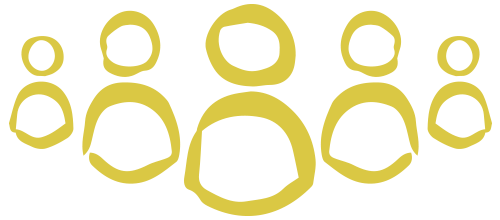


Why conferences?
“I hadn’t really gone to conferences like this before, and I thought it was really good to be able to talk with people and focus on trying to change the issues.”
“I really like the break-out sessions where you could decide who you listen to because maybe you’re not as interested in one topic as you are another.”
“It was good to hear from other students, I think a good conference takes a range of perspectives.”
“At conferences you get to listen to other people’s opinions and what they have to say which broadens your view and understanding of the topic.”
“It gets people talking. After the conference I went home and told my dad about it, and then my dad went into work and told other people about it. It gets everyone talking whether you were there or not.”
Our tips for speech writing
1. Write it in a style that feels right for you
2. Don’t overthink it
3. If it’s a topic that you really love and have strong opinions on it, then don’t worry what other people might think





